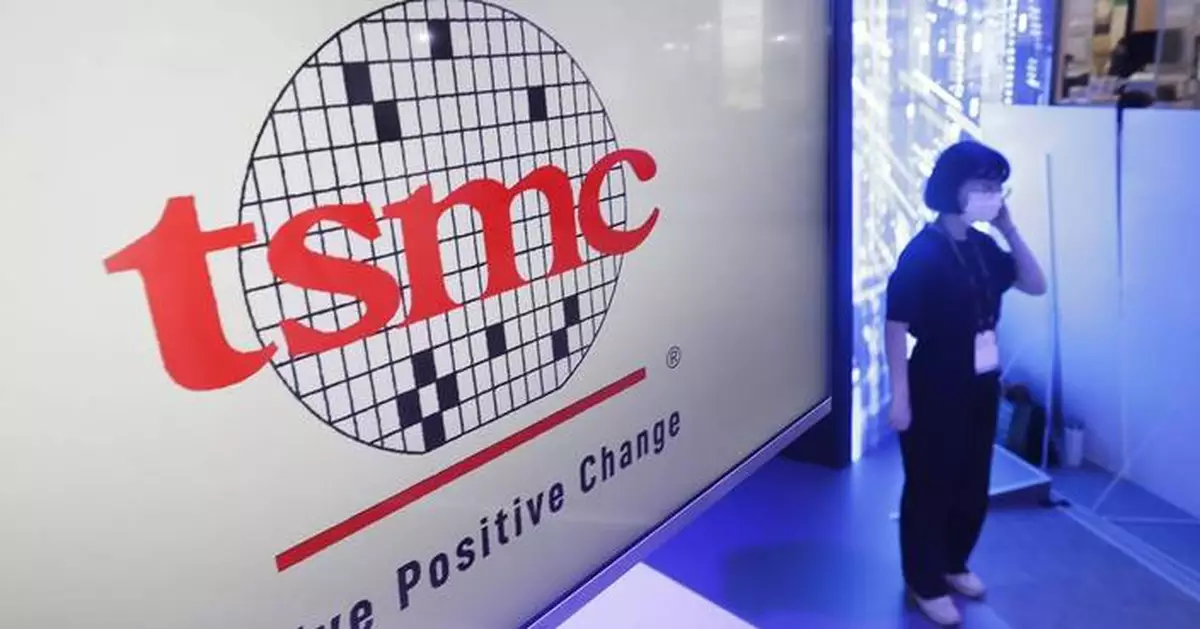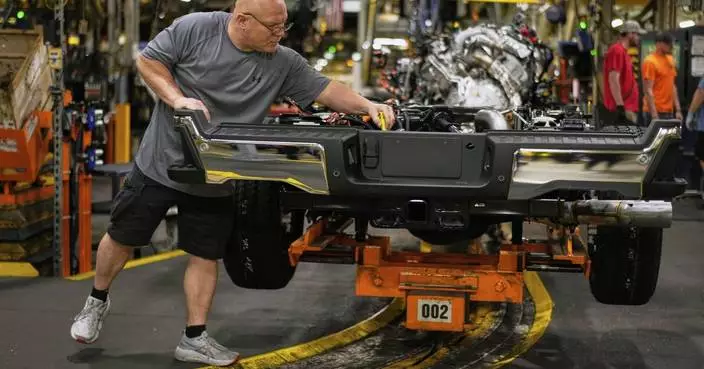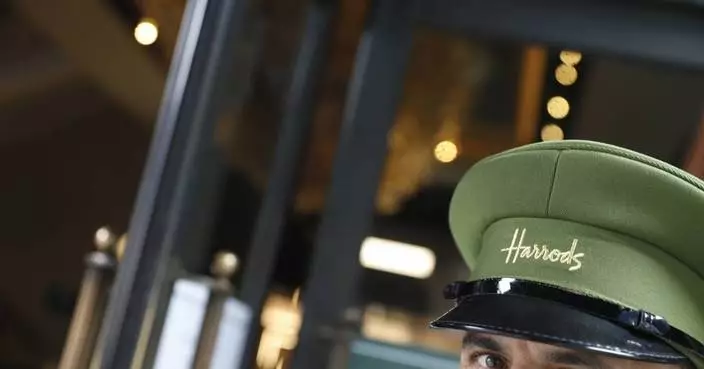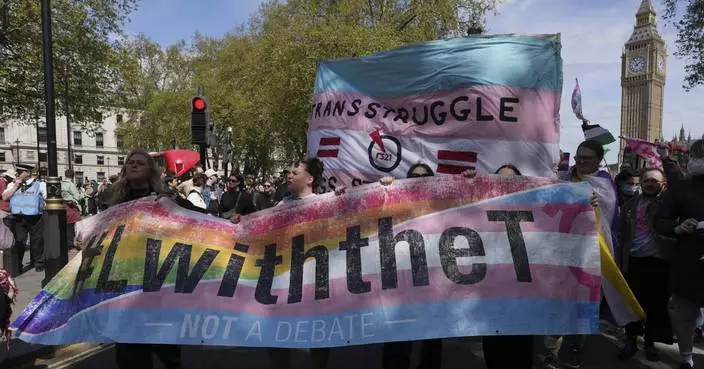TAIPEI, Taiwan (AP) — Taiwan's president and top chipmaker TSMC held a joint news conference Thursday to defend the company's decision to invest $100 billion in the U.S., saying it stemmed from customer demand and not pressure from the Trump administration.
Taiwan Semiconductor Manufacturing Company (TSMC), the world’s largest chipmaker, said earlier this week it would invest $100 billion in three more chip manufacturing plants, along with two packaging facilities in Arizona.
The decision sparked concerns that Taiwan would gain little in return for moving some of its most advanced manufacturing processes to the U.S.
Taiwan President Lai Ching-te denied that TSMC’s investment decision was due to political pressure by the United States. U.S. President Donald Trump had previously said that Taiwan had taken away the U.S. chip business and that he wanted it back.
"TSMC's decision is necessary for its future development. The government did not face pressure from the United States during TSMC's investment process in the U.S.," said Lai on Thursday.
TSMC CEO C.C. Wei said that he had spoken with the firm's customers and realized that TSMC's current expansion plans in the U.S. were insufficient to meet current demand.
"Customer demand has been steadily increasing. For TSMC, our investment plans are based on customer needs, and we are very cautious," Wei said.
"The amount of investment in the U.S. may seem large, but it is still not enough to meet demand," he added.
He also said that the development plans in the U.S. would not affect TSMC's plans in Taiwan, and that the company currently had 10,000 employees researching and developing 1.0 nanometer chips.
While Taiwan is a self-ruled island, Beijing sees Taiwan as a renegade province to be taken back by force if necessary.
The U.S. does not recognize Taiwan as a country, but is its strongest backer and biggest arms provider.
But the continued support of the U.S. appears increasingly fragile under the Trump administration, who has contended that Taiwan relies too much on the U.S. and needs to spend more on defense. A Pentagon nominee earlier this week said Taiwan should be spending about 10% of its gross domestic product on defense to deter a war with China.
Taiwan's Lai last month pledged to increase defense spending to over 3% of its gross domestic product, up from less than 2.5%.
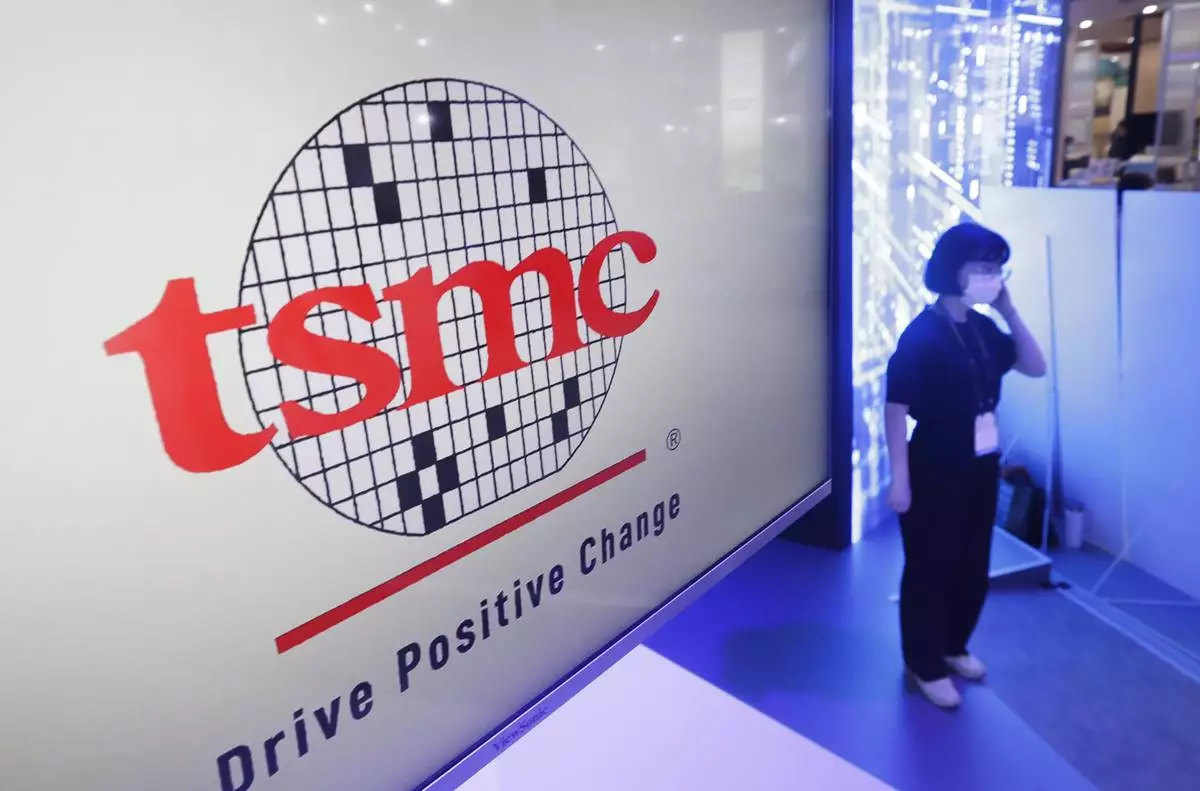
FILE - This photo shows the logo of TSMC (Taiwan Semiconductor Manufacturing Company) during the Taiwan Innotech Expo at the World Trade Center in Taipei, Taiwan, Oct. 14, 2022. (AP Photo/Chiang Ying-ying, File)
The White House is planning on Friday to unveil President Donald Trump’s 2026 budget, a sweeping framework that's expected to propose steep reductions, if not a wholesale zeroing out, of various federal programs as part of his administration’s priorities.
Meanwhile, the Trump administration has asked the Supreme Court to strip temporary legal protections from 350,000 Venezuelans, potentially exposing them to being deported.
Here's the latest:
“We are going to be taking away Harvard’s Tax Exempt Status,” he wrote on his social media site Friday morning. “It’s what they deserve!”
Trump and his White House have repeatedly gone after Harvard. In addition to threatening its tax-exempt status, the administration has halted more than $2 billion in grants to Harvard and wants to block the school from being able to enroll international students.
The detailed Army plans for a potential military parade on Trump’s birthday in June call for more than 6,600 soldiers, at least 150 vehicles, 50 helicopters, seven bands and possibly a couple thousand civilians, The Associated Press has learned.
The planning documents, obtained by the AP, are dated April 29 and 30 and have not been publicly released. They represent the Army’s most recent blueprint for its long-planned 250th anniversary festival on the National Mall and the newly added element — a large military parade that Trump has long wanted but is still being discussed.
The Army anniversary just happens to coincide with Trump’s 79th birthday on June 14.
While the slides do not include any price estimates, it would likely cost tens of millions of dollars to put on a parade of that size.
▶ Read more about the Army’s military parade plans
As Trump faces significant pushback from federal judges, a new poll shows U.S. adults are more likely to believe the president is the one overstepping his power rather than the courts -- although Republicans largely think the opposite.
According to a poll from The Associated Press-NORC Center for Public Affairs Research, about half of Americans say the president has “too much” power in the way government operates these days. On the other hand, Americans are more likely to believe the federal courts have an appropriate amount of authority. Only about 3 in 10 U.S. adults say that federal judges have “too much” power.
Republicans see it the other way: Roughly half say the federal judiciary has too much power, and only about 2 in 10 say the president does.
▶ Read more about the latest AP-NORC poll
When the Justice Department lifted a school desegregation order in Louisiana this week, officials called its continued existence a “historical wrong” and suggested that others dating to the Civil Rights Movement should be reconsidered.
The end of the 1966 legal agreement with Plaquemines Parish schools announced Tuesday shows the Trump administration is “getting America refocused on our bright future,” Assistant Attorney General Harmeet Dhillon said.
Inside the Justice Department, officials appointed by Trump have expressed a desire to withdraw from other desegregation orders they see as an unnecessary burden on schools, according to a person familiar with the issue who was granted anonymity because they were not authorized to speak publicly.
Dozens of school districts across the South remain under court-enforced agreements dictating steps to work toward integration, decades after the Supreme Court struck down racial segregation in education. Some see the court orders’ endurance as a sign the government never eradicated segregation, while officials in Louisiana and at some schools see the orders as bygone relics that should be wiped away.
▶ Read more about the end to the desegregation order
— Collin Binkley
Trump on Thursday signed an executive order aiming to slash public subsidies to PBS and NPR as he alleged “bias” in the broadcasters’ reporting.
The order instructs the Corporation for Public Broadcasting and other federal agencies “to cease Federal funding for NPR and PBS” and further requires that that they work to root out indirect sources of public financing for the news organizations. The White House, in a social media posting announcing the signing, said the outlets “receive millions from taxpayers to spread radical, woke propaganda disguised as ‘news.’”
It’s the latest move by Trump and his administration to utilize federal powers to control or hamstring institutions whose actions or viewpoints he disagrees with. Since taking office, Trump has ousted leaders, placed staff on administrative leave and cut off hundreds of millions of dollars in funding to artists, libraries, museums, theaters and others, through takeovers of the John F. Kennedy Center for the Performing Arts and the National Endowment for the Humanities.
▶ Read more about the executive order
Rubio has been thrown into two top national security jobs at once as Trump presses forward with his top-to-bottom revamp of U.S. foreign policy, upending not only longstanding policies that the former Florida senator once supported but also the configuration of the executive branch.
Trump’s appointment of Rubio to temporarily replace Mike Waltz as national security adviser is the first major leadership shake-up of the nascent administration, but Waltz’s removal had been rumored for weeks — ever since he created a Signal group chat and accidentally added a journalist to the conversation where top national security officials shared sensitive military plans.
So, just over 100 days into his tenure as America’s top diplomat, Rubio now becomes just the second person to hold both positions. He follows only the late Henry Kissinger, who served as both secretary of state and national security adviser for two years under Presidents Richard Nixon and Gerald Ford in the 1970s.
▶ Read more about Rubio’s new role
The Justice Department asked the high court to put on hold a ruling from a federal judge in San Francisco that kept in place Temporary Protected Status for the Venezuelans that would have otherwise expired last month.
The status allows people already in the United States to live and work legally because their native countries are deemed unsafe for return due to natural disaster or civil strife.
A federal appeals court had earlier rejected the administration’s request.
Trump’s administration has moved aggressively to withdraw various protections that have allowed immigrants to remain in the country, including ending TPS for a total of 600,000 Venezuelans and 500,000 Haitians. TPS is granted in 18-month increments.
The emergency appeal to the high court came the same day a federal judge in Texas ruled illegal the administration’s efforts to deport Venezuelans under an 18th-century wartime law. The cases are not related.
▶ Read more about the Trump administration’s request
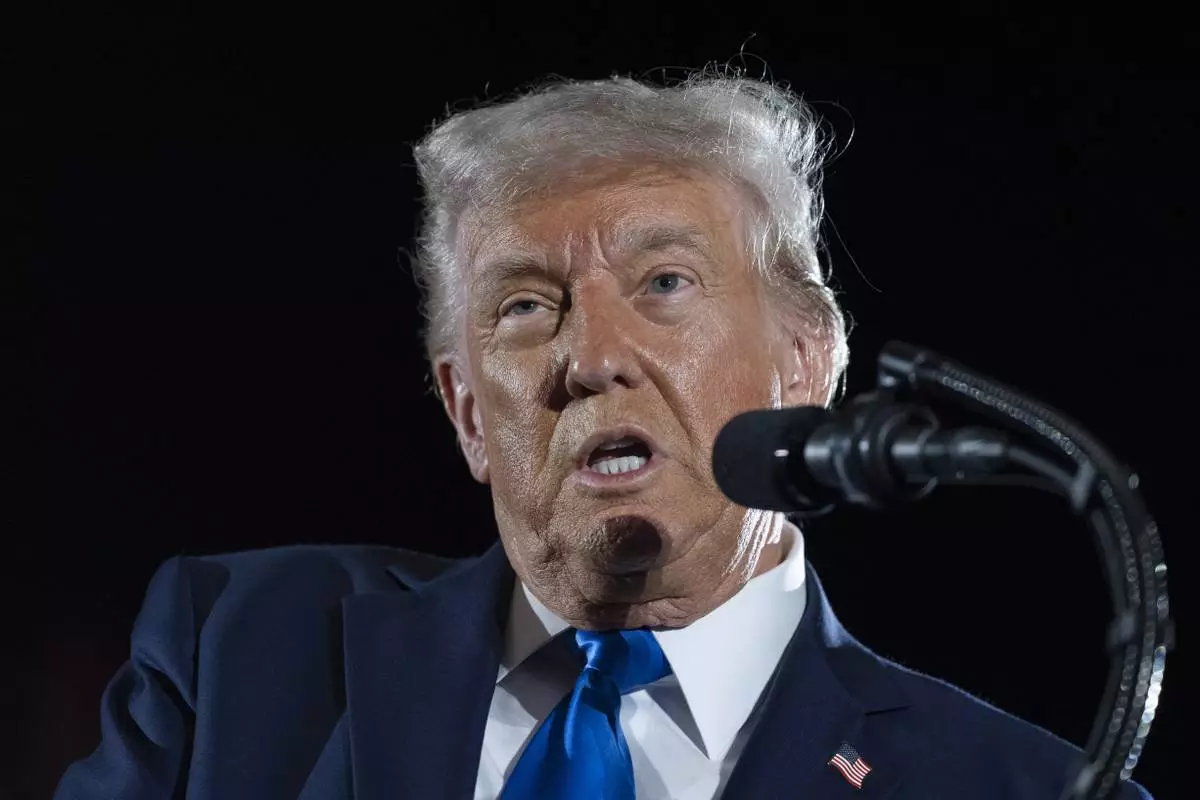
President Donald Trump gives a commencement address at the University of Alabama, Thursday, May 1, 2025, in Tuscaloosa, Ala.(AP Photo/Manuel Balce Ceneta)
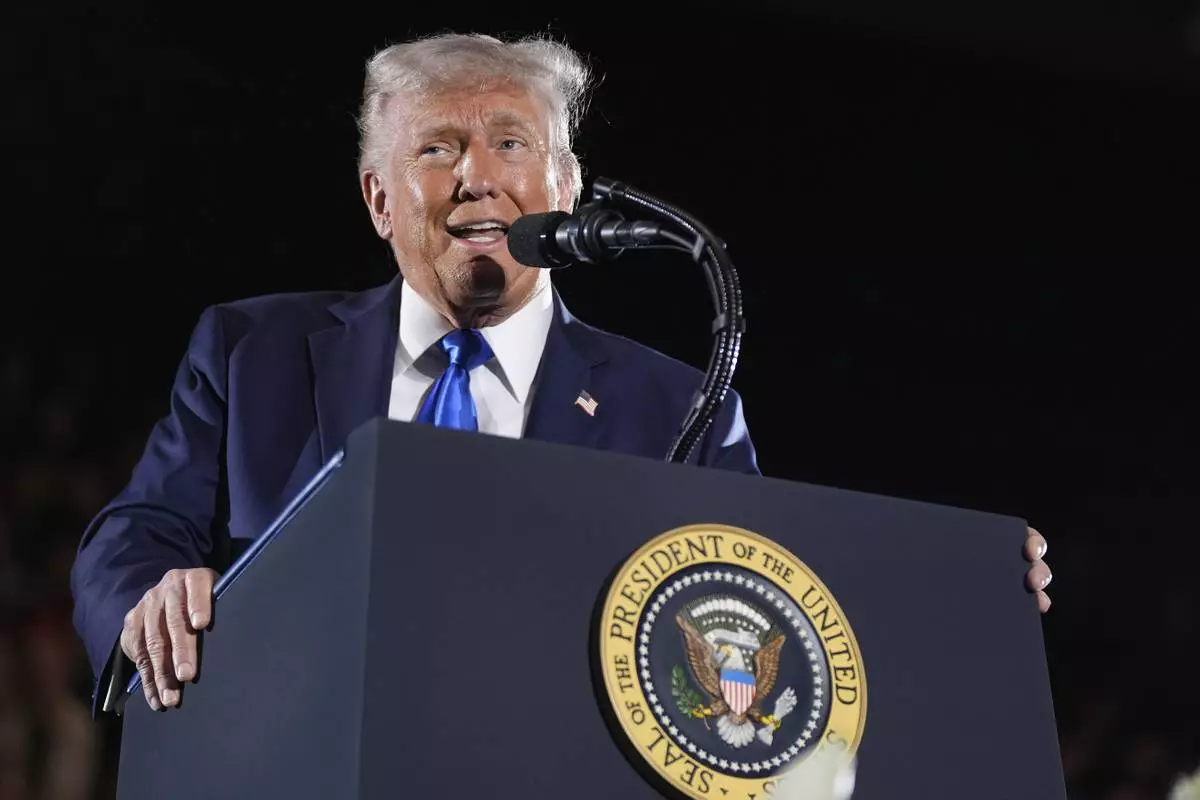
President Donald Trump gives a commencement address at the University of Alabama, Thursday, May 1, 2025, in Tuscaloosa, Ala. (AP Photo/Manuel Balce Ceneta)
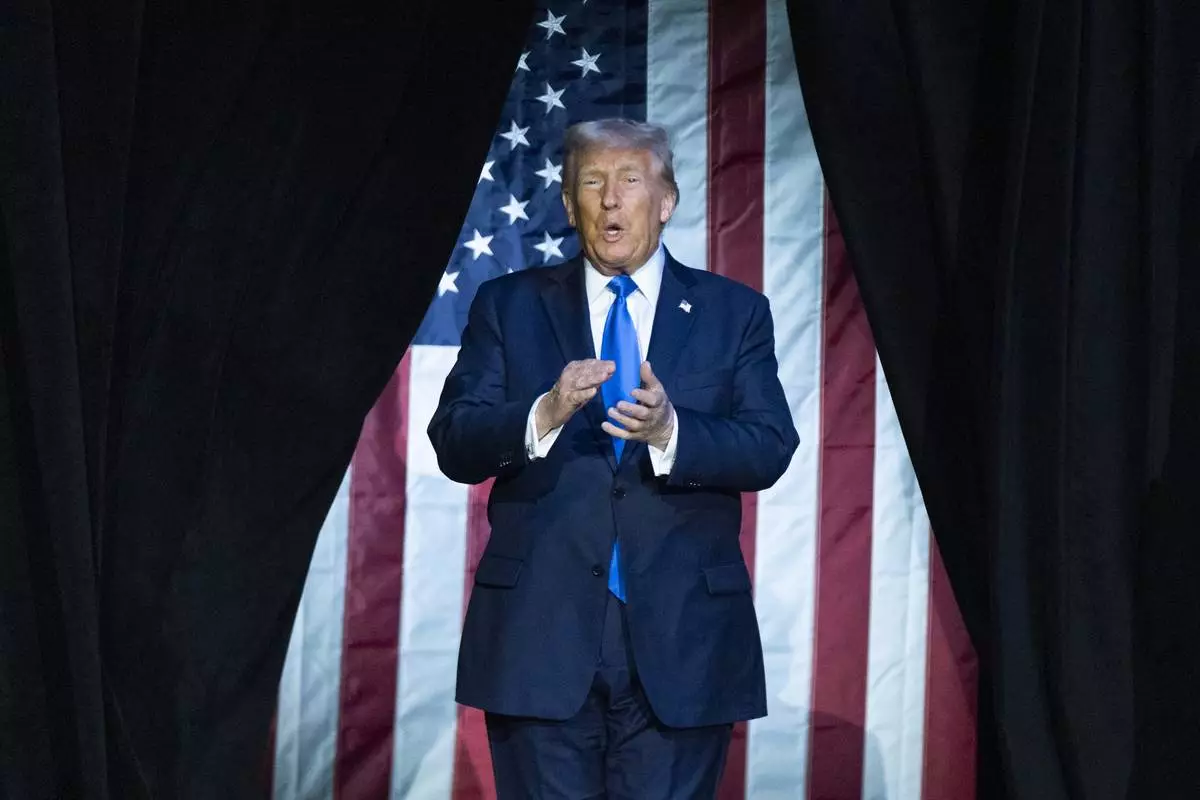
President Donald Trump arrives to give a commencement address at the University of Alabama, Thursday, May 1, 2025, in Tuscaloosa, Ala.(AP Photo/Manuel Balce Ceneta)



